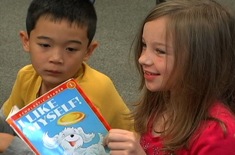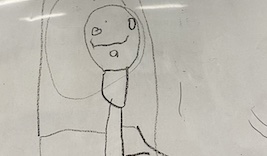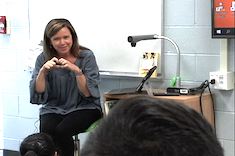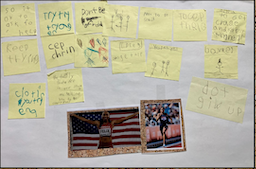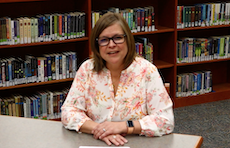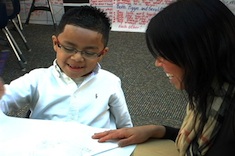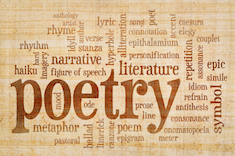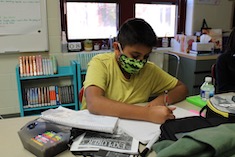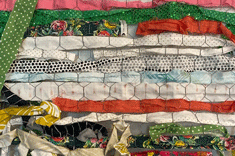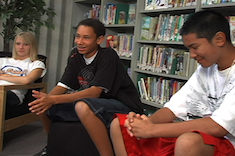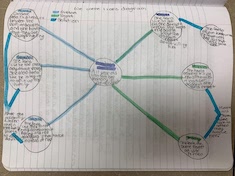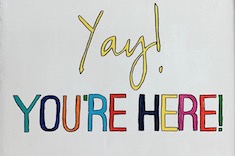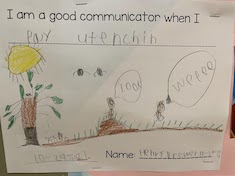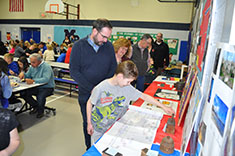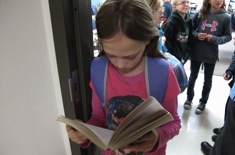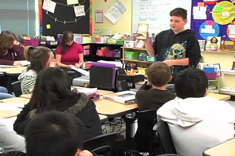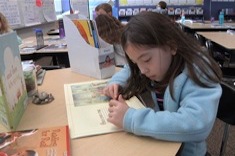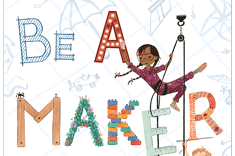Community Building
It's one of the big paradoxes of literacy instruction - students best learn how to read and write independently when they have a strong community of support in classrooms. How teachers build those thoughtful, kind, and challenging classroom communities is explained in these resources.
Latest Content
Read Aloud Magic
Jen Court reminds us of the power of reading aloud to students and pushes us to remember the importance of planning to use books to engage students and hone teaching points.
Our Brains on Happiness
Molly James shares the compelling research about the happiness advantage by Shawn Achor and two practical practices to make it a reality in her kindergarten classroom.
Student Voices First
David Pittman offers practical ways to place student voices first in classrooms in order for their passions, interests, and identities to influence our teaching.
Our Words Matter: Developing Perseverance in Literacy
Becca Burk reflects on the power of intentional language to build perseverance in students. She shares a booklist designed to give students scripts they need to become brave learners.
Informal Conversations Give Insight for Instruction
Melissa Quimby encourages informal conversations with students to get insight into their personalities and lives.
Building a Classroom Library with Students (and Navigating the Tricky Parts)
Tammy Mulligan leads us through the process of giving primary students the reins for building and organizing the classroom library . . . and offers tips for navigating the tricky parts.
Nourish a Sense of Belonging
Dana Murphy shares ways to nourish a sense of belonging in all students.
Lifting the Quality of Hands-Down Conversations
Tammy Mulligan leads us through troubleshooting the difficult parts of launching hands-down conversations. This is the third installment of a three-part series about launching hands-down conversations.
How to Begin a Community Circle
Bitsy Parks gives direction in beginning a community circle with primary learners.
Holidays: Where Do They Fit in the Classroom?
Bitsy Parks shares the inspiration and practical ways she celebrates and honors holidays from many cultures in her classroom.
QuickTake: Chronicling Learning All Year
Tammy Mulligan shares a beginning-of-the-year routine where second graders create an identity frame. This becomes a place to highlight photographs of their learning each week throughout the school year.
QuickTake: Leave Space for Personalization
Melissa Quimby advises leaving space for students to personalize the classroom when they arrive to start the new school year.
Quick Take: Listen to Create a Sense of Belonging
Stella Villalba encourages all educators to listen to students to understand how to create a culture of belonging.
Using Daily Attendance Questions to Build Community and Communication Skills
Gretchen Schroeder is surprised to find benefits of a stronger community and communication skills through a practical attendance routine in her high school classroom.
What I Am Reading the First Week of School
Jen Court plans to fill the first days of first grade with experiences around books. Selecting books carefully to create a sense of community in the classroom from the very beginning is the goal of this first-week booklist.
Poems to Start the Year
Tara Barnett and Kate Mills share poems to start the year that touch a variety of needs, from building community to connecting with colleagues to hosting parents for back-to-school night.
Honoring Student Identity (Download a Survey)
Tara Barnett and Kate Mills share their authentic process for expanding their beginning-of-the-year student survey to make it more open for all students.
Creating a Classroom Emotional Intelligence Charter
Mandy Robek outlines the process for creating a class Emotional Intelligence Charter. She includes a booklist to help students expand their vocabulary of different emotions.
Join a Reading Community
Jen Vincent invites all educators to join a reading community by participating in the kidlit version of It’s Monday! What Are You Reading?
Bedtime Stories with a Mystery Reader
Tara Barnett and Kate Mills share a wonderful school-wide and home read aloud experience: Bedtime Mystery Reader. They outline all of the details to bring Bedtime Mystery Reader to your school.
Take a Chance
Julie Cox invites us to take risks in order to encourage students to try new things with their writing and reading. Julie concludes that when teachers are professional risk-takers, we are more available to students and know how to help them when they fail.
Student-Planned End-of-Year Celebration
Josie Stewart and Hannah Tills know the end of the school year is full, yet they take the time to reflect and celebrate what learners have built throughout the year by asking students to create a plan for a final celebration.
Presence Required
Christy Rush-Levine reminds us that it requires presence to sit alongside young readers and writers. In two examples, we find resilience for meeting students at their points of need and then teaching them as readers and writers.
Keeping Unity
When students feel safe, they are positioned to learn. Julie Cox shares ways to create a learning environment that brings unity to her high school classroom.
What Is Communication? A Mini-Inquiry Project and Booklist
Bitsy Parks leads her first-grade class in a study about communication to strengthen their socially distanced and muffled-by-masks community. Included is a booklist.
Creating a Community of Care: Beyond the Classroom Walls
Stella Villalba outlines three ways to cultivate a community for students beyond the classroom walls. There is comfort for teachers and students in knowing that a larger community is rooting for them.
The Classroom Library: Building Bridges
Cathy Mere presses to help children take the first steps in growing a sustainable reading life that carries beyond the classroom walls. She offers ways to build bridges to the school and public libraries as an essential step.
See Your Students
Shari Frost shares ways teachers can show that they “see” and appreciate each student every single day.
Bring In the School Year Like a Grandma
Julie Johnson reflects on how to help students know they belong and are valued in a classroom community.
Lead with Art, and Literacy Will Naturally Follow
Stella Villalba widens our perspective by sharing the link between art and literacy with suggested picture books to help build the bridge.
Browse Content By
Type
Category
- Assessment Tools
- Big Fresh Archives
- Booklists
- Choice Numeracy
- Classroom Design
- Common Core
- Community Building
- Conferring
- Content Literacy
- Digital Literacy
- English Language Learners
- Equity
- Family Relations
- Free Samples
- Guiding Groups
- Leadership
- Literacy Coaches
- Mentor Texts
- Minilessons
- New Teacher Mentors
- Podcasts
- Poetry
- Quote Collections
- Reading Strategies
- Self Care
- Struggling and Striving Learners
- Talking and Listening
- Teacher Study Groups
- Teaching Reading
- Teaching Writing
- Word Study and Vocabulary
Author
- Melissa Quimby
- Nawal Qarooni
- Gwen Blumberg
- Julie Cox
- The Lead Learners
- Hannah Tills
- Josie Stewart
- Ruth Metcalfe
- Mallory Messenger
- Becca Burk
- Jodie Bailey
- Vivian Chen
- Mary Brower
- Tiffany Abbott Fuller
- Stephanie Affinito
- Ruth Ayres
- Leigh Anne Eck
- Heather Fisher
- Shari Frost
- Julie Johnson
- Suzy Kaback
- Gigi McAllister
- Shirl McPhillips
- Melanie Meehan
- Cathy Mere
- Debbie Miller
- Tara Barnett and Kate Mills
- Tammy Mulligan
- Dana Murphy
- Bitsy Parks
- David Pittman
- Brenda Power
- Heather Rader
- Matt Renwick
- Mandy Robek
- Christy Rush-Levine
- Gretchen Schroeder
- Jen Schwanke
- Brian Sepe
- Katherine Sokolowski
- Stella Villalba
- Jennifer Vincent
Grade Level
Choice Literacy Membership
Articles
Get full access to all Choice Literacy article content
Videos
Get full access to all Choice Literacy video content
Courses
Access Choice Literacy course curriculum and training

